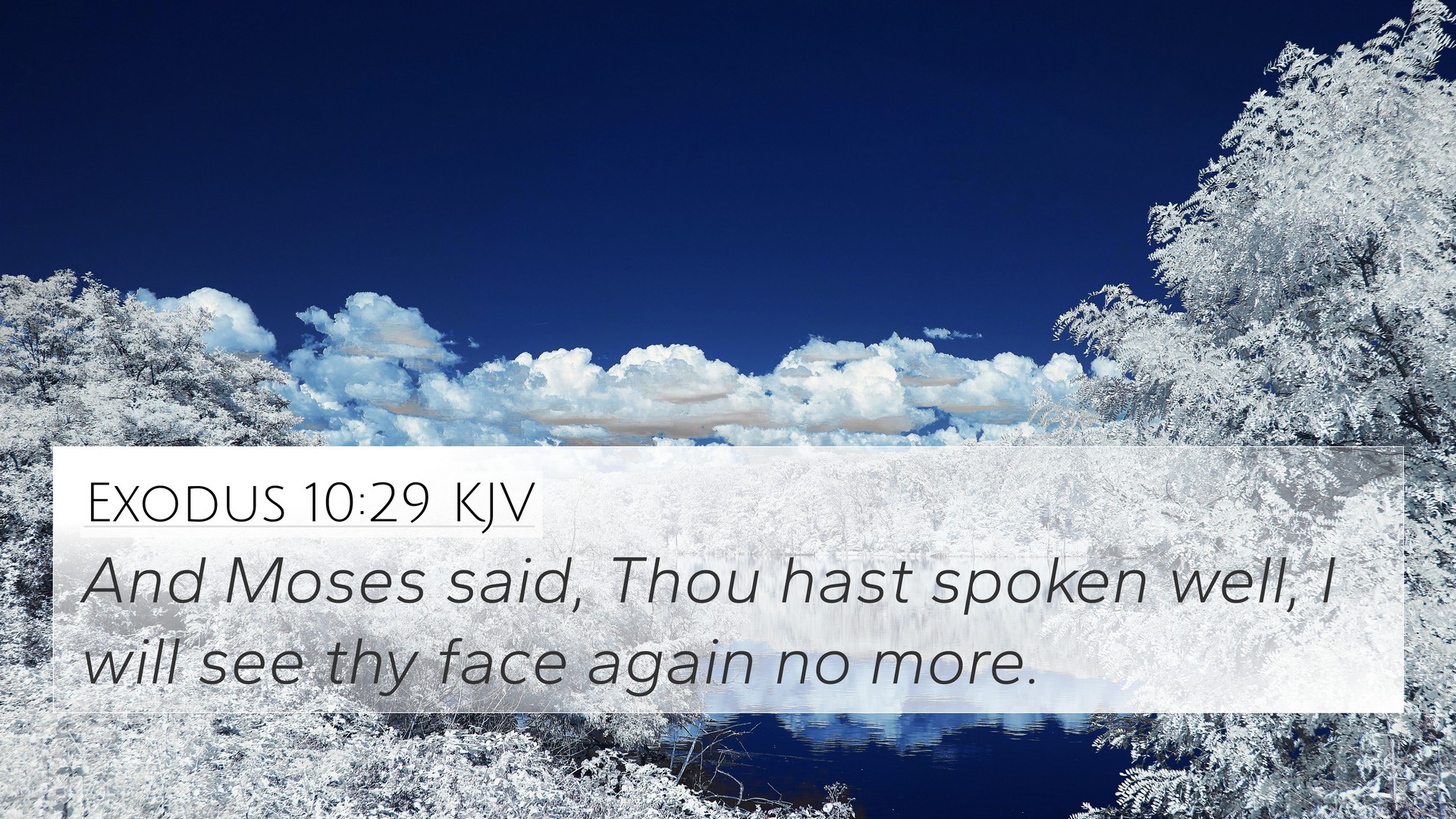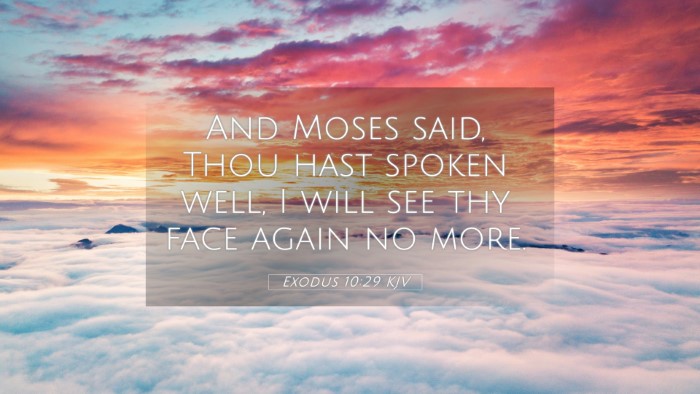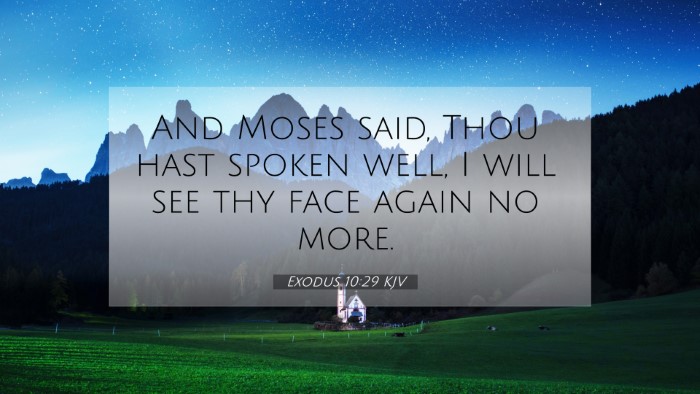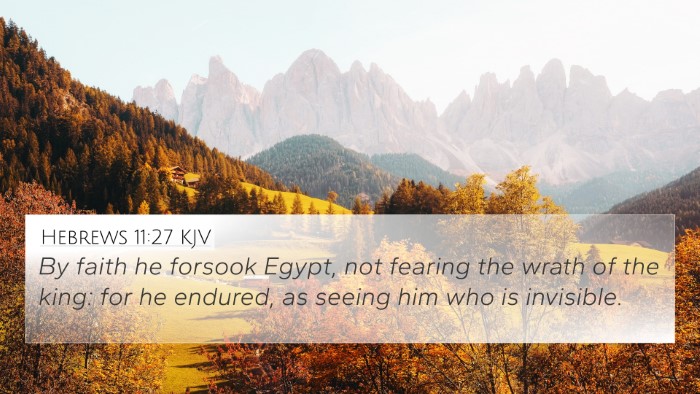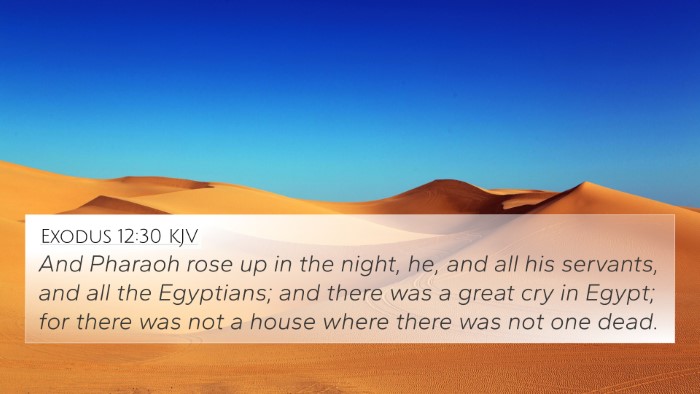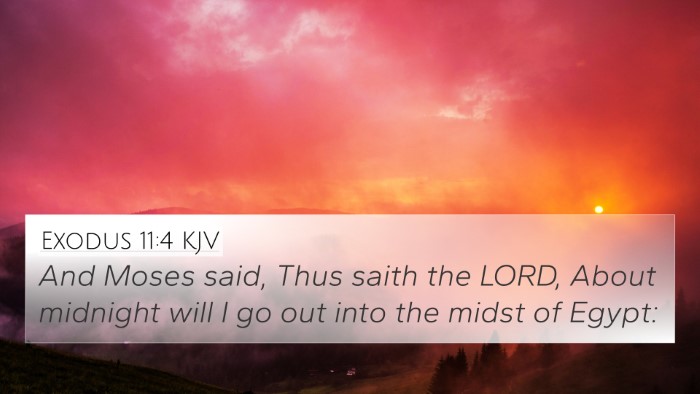Understanding Exodus 10:29
Exodus 10:29 states: "And Moses said, Thou hast spoken well; I will see thy face again no more." This verse captures a pivotal moment in the dialogue between Moses and Pharaoh during the plagues in Egypt, highlighting themes of authority, judgment, and the severance of relationships.
Commentary Insights
This verse carries significant weight in the narrative as it shows Moses's finality in his interactions with Pharaoh. Several commentaries provide insights into its meaning:
- Matthew Henry: Henry emphasizes the solemnity of this moment, noting Moses's assurance that he would not return to Pharaoh's presence again. This serves as a clear indication of both God's judgment upon Egypt and the hardened heart of Pharaoh.
- Albert Barnes: Barnes points out that Moses's statement reflects the culmination of the plagues, showcasing Pharaoh's defiance and the point of no return in their confrontation. The disconnection signifies not only a personal farewell but also a divine judgment that Pharaoh has sealed upon himself.
- Adam Clarke: Clarke notes that this declaration marks the end of Moses's intercession for Pharaoh, indicating a moment of divine abandonment. It highlights the consequences of Pharaoh's persistent hardening of heart against God's commands.
Thematic Connections
Exodus 10:29 is intertwined with various biblical themes and narratives. Its meaning can be better understood through the following themes:
- Divine Authority and Judgment: The severance of Moses and Pharaoh illustrates the ultimate authority of God and the resulting judgment when one resists His will.
- Hardness of Heart: This moment serves as a poignant example of a heart turned against God, as reiterated in other scriptures.
- Finality of Decisions: Exodus 10:29 also speaks to the finality in choices made, with Pharaoh's refusal leading to dire consequences.
Bible Verse Cross-References
To further enrich your understanding of Exodus 10:29, you can explore the following cross-references:
- Exodus 9:22-23 - Discusses the final plague and sets the context of God’s judgment.
- Exodus 7:3-4 - God foretells the hardening of Pharaoh’s heart.
- Romans 9:17 - Paul mentions Pharaoh in the context of God’s sovereignty and mercy.
- Proverbs 29:1 - Illustrates the consequences of hardening one's heart.
- Matthew 23:37 - Jesus laments over Jerusalem's stubbornness, paralleling Pharaoh’s choices.
- 1 Samuel 15:23 - Highlights the rejection by God due to disobedience, akin to Pharaoh’s final stand.
- Hebrews 3:15 - Warns against hardening one’s heart as during the time of testing.
Conclusion
Exodus 10:29 signifies a critical juncture in the relationship between Moses and Pharaoh and accentuates the broader themes of divine authority, judgment, and the consequences of a hardened heart. By exploring the cross-referencing biblical texts, one finds deeper insights into the narrative's implications, not only for Pharaoh but for all who choose to resist God's commands.
Further Study and Application
For those engaging in Bible cross-reference studies, understanding Exodus 10:29 alongside its cross-references can provide a holistic view of God’s character and human disposition towards divine authority. This can be valuable in sermon preparation, personal study, and in understanding the continuity of biblical themes across both the Old and New Testaments.
